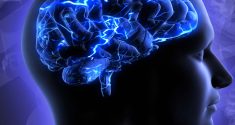Many people around the world have trouble getting the sleep they need, despite good medical care. Researchers are constantly trying to solve the mysteries of sleep disorders.
Do you have trouble getting to sleep or staying asleep? If so, you are not the only one. An estimated 50-70 million people struggle with sleep disorders in the United States alone, in the Western world, 20 to 30 percent of people are affected. While there are sleeping pills and other medical means of dealing with difficulty sleeping, these can be expensive and have adverse side effects. Many people cannot find a cure for their sleep disorder or even an adequate treatment. But what if your sleep disorder is in your genes and can be treated as a genetic disorder?
New Technologies in Treating Genetic Disorders
Because so many people suffer from genetic disorders ranging from cystic fibrosis to breast cancer, there has been a great deal of modern research on how to treat these inherited diseases. In some cases, people can have an inappropriately activated gene turned off or take a pill that replaces the proteins they are missing due to a mutation. There has even been promising research on using viruses to “infect” people suffering from a genetic disorder with the gene that they are missing, which would, in theory, cure them of their disease.
Understanding genetic disorders leads to more effective treatment. For instance, knowing that people with cystic fibrosis lack a crucial ion transporter that thins secretions has led to treatments such as mucus thinners. In many cases, simply knowing the exact problem can be the first step to developing an effective treatment and even a cure. Even in topics such as chronobiology, identifying the problem is the first step toward unraveling the mysteries of sleep disorders and finding more effective treatments.
Are the Mysteries of Sleep Disorders All in Your Genes?
According to new research, your troubles sleeping may be due to inherited genes. Genetic screening of mice has found that knocking out certain genes can lead to excessive sleepiness, while another gene mutation can lead to a lack of REM sleep. In both cases, mice may get plenty of sleep but remain feeling unrested and groggy.
How does this affect humans? Because sleep is highly conserved, meaning the same core genes in almost all creatures govern it, these genes may be the culprits in humans and other animals. Researchers can now look at humans with sleep disorders to see if they also have mutations in these critical genes that contribute to a properly timed circadian rhythm. Even more importantly, we may be able to treat sleep disorders with gene therapies targeted at these missing or mutated genes.
Knowledge Is Power

A wise man once said that “early to bed and early to rise” is the secret to wealth, health and wisdom. However, many people struggle to implement this advice because early to bed does not necessarily mean getting enough sleep. Chronotypes must also be taken into account so there is no need for self-blame if this is the case for you. Circadian biology research suggests that the mysteries of sleep disorders may be all in your genes, and your medical problem may soon have a scientific solution.







